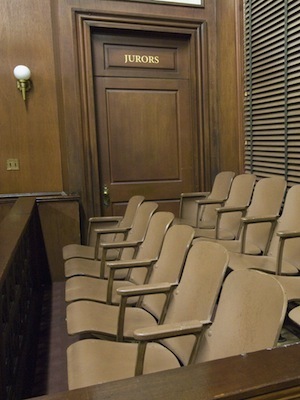CHICAGO — A Cook County judge has struck down a law limiting civil juries to six members, saying the change goes against principles enshrined in Illinois' state constitution.
Judge William Gomolinksi overruled the law Dec. 21, maintaining that this is a matter of defending the constitution, not a definitive determination that a 12-person jury is the most effective way to try a civil case.
According to the 1970 Constitution, cases are provided with a trial by jury “as heretofore enjoyed.” Gomolinksi ruled in what came down to a language dispute that, while the constitution doesn't specify a number of jurors proper for such trials, Illinois had a constitutional precedent of 12-member juries. He said this can only be changed through an amendment to the constitution.
“I think the judge is absolutely correct,” said Ann Lousin, former parliamentarian of the Illinois House and Professor of Law at John Marshall Law School in Chicago. “He read the history very carefully.”
Gomolinksi’s judgment came just one year after the bill containing the language changing the jury rules was pushed through both houses of the Illinois General Assembly in two days and signed by former Gov. Pat Quinn.
Proponents of the bill argued there is room for interpretation in the Constitution.
“It is a very complicated situation. The problem is, every date a new constitution took effect, you had a different right to trial by jury. This creates a problem,” said Lousin.
The law has been in effect since June and has been raising a debate not only on the constitutionality of the bill, but also on whether a six-person jury is a better theoretical policy for civil cases. In terms of research, the jury is definitively out as to whether a six- or 12-person jury can deliberate more effectively.
“Until about 50 years ago, we did not have research on juries. This is my personal opinion, but I am skeptical of some of the research,” said Lousin, “It gets complicated in what I would call social dynamics in the juries.”
Twelve person juries certainly have more opinions, but does this come at a cost of efficiency both in terms of time and money? Another question raised is who this law most benefits – a jury or lawyers litigating a case? Defense attorneys in the case argued plaintiff’s lawyers would benefit most because they would have fewer jurors to persuade. However, in cases in which facts prevail over emotion, the defense could stand to benefit more.
Part of the overruled bill included a provision to more than double jurors' pay. This deal quickly turned sour when legislation was proposed in January that would allow counties to bypass the higher wage.
To add another wrinkle, there are also far more criminal than civil cases, all of which still require a 12-person jury. With no differentiation written in the law between the two juries, the cost of trials in Illinois is predicted to rise.
Gomolinkski maintained the issue came down to respecting the intent of the constitution, regardless of the benefits of a six-person jury.
David A. Axelrod, lawyer for the plaintiffs in the underlying case, plans to appeal in the next few weeks.
“If I were a betting woman, I would say that the ruling will be upheld,” said Lousin.
